INSPIRATIONS. ENCOUNTERS. ALTERNATIVES
weltgewandt realises civic and political education in Berlin and Europe. The offers are diverse: workshops, dialogue cafés, discussions, excursions, texts and online courses. weltgewandt stands for human rights, democracy, analysis and enlightenment, discussion culture, freedom of opinion, public spirit, joy and the art of living. The institute is not affiliated with any political party and is open to people of different lifestyles, cultures and perspectives. Guiding principle is the humanistic educational ideal of Wilhelm von Humboldt. Find out more and join us.
NEWS

DIALOGUE café
Getting to know others, laughing, experiencing the power of one’s own body language. Open to everyone. Thu, 30/01/25, 18 o’clock
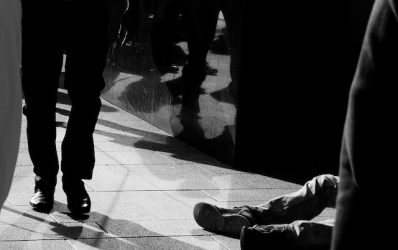
Global inequality
… and the survival of … the richest? An Oxfam report shows the global inequality and how the survival of all requires a radically different turn.
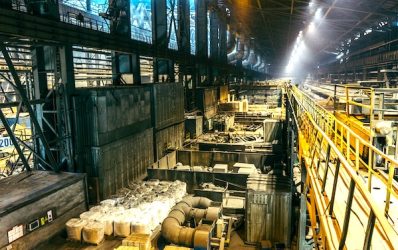
Deindustrialising?
Short article on the debate if Europe is currently deindustrialising as a consequence of politics in times of war and crisis.

Resilience
Resilience is a term that is used in many different disciplines such as psychology, economics, sociology or engineering. But what does it mean?
PUBLICATIONS
















The current upheavals and crises are also changing the world of work. How? Which jobs are being cut and which are being created? Are working conditions changing? Courses in five languages on these and other questions.
The current upheavals and crises are also changing the world of work. How? Which jobs are being cut and which are being created? Are working conditions changing? Courses in five languages on these and other questions.
The current upheavals and crises are also changing the world of work. How? Which jobs are being cut and which are being created? Are working conditions changing? Courses in five languages on these and other questions.
Knowledge of history opens the door to understanding. Courses in seven languages about events that still have an impact today and are sometimes controversial.
Knowledge of history opens the door to understanding. This is especially true of experiences of change and transformation. Courses in seven languages about events that still have an impact today and are sometimes controversial.
Money, debt, social inequality, growth, climate change, different economic schools, taxes and much more: courses in six languages to better understand what is happening. Including forum to join the discussion.
Knowledge of history opens the door to understanding. Courses in seven languages about events that still have an impact today and are sometimes controversial.
Knowledge of history opens the door to understanding. This is especially true of experiences of change and transformation. Courses in seven languages about events that still have an impact today and are sometimes controversial.
Knowledge of history opens the door to understanding. This is especially true of experiences of change and transformation. Courses in seven languages about events that still have an impact today and are sometimes controversial.
Articles on climate change controversies, green and social transformation, history of waste and recycling, natural disasters, water and other topics. Please click on "get started"
Articles on climate change controversies, green and social transformation, history of waste and recycling, natural disasters and their connection to global warming, water and other topics. Please click on "get started"
Articles on climate change controversies, green and social transformation, history of waste and recycling, natural disasters and their connection to global warming, water and other topics. Please click on "get started".
Author Karl-Martin Hentschel calls his introduction to the problem of global warming a "story of knowing and not wanting to know". He discusses the effects and ways to politically counteract them. An attempt to contribute to the objectification of the debate.
Author Karl-Martin Hentschel calls his introduction to the problem of global warming a "story of knowing and not wanting to know". He discusses the effects and ways to politically counteract them. An attempt to contribute to the objectification of the debate.
Author Karl-Martin Hentschel calls his introduction to the problem of global warming a "story of knowing and not wanting to know". He discusses the effects and ways to politically counteract them. An attempt to contribute to the objectification of the debate.
Climate change and climate protection policy are controversially discussed. Some believe that global warming has always existed. For others, the transition to a new economy cannot happen fast enough. Still others complain that the issue is being instrumentalised politically. The author Adi Golbach addresses the various arguments.
Climate change and climate protection policy are controversially discussed. Some believe that global warming has always existed. For others, the transition to a new economy cannot happen fast enough. Still others complain that the issue is being instrumentalised politically. The author Adi Golbach addresses the various arguments.
Climate change and climate protection policy are controversially discussed. Some believe that global warming has always existed. For others, the transition to a new economy cannot happen fast enough. Still others complain that the issue is being instrumentalised politically. The author Adi Golbach addresses the various arguments.
The author Karl-Martin Hentschel says: "People with low incomes are significantly more affected by climate change. They are also more affected by price increases of food, (...) electricity and heating and by other kinds of purchases that are influenced by climate policy. (...) Therefore, the Paris Agreement will only be successfully implemented if social justice is considered from the beginning.
The author Karl-Martin Hentschel says: "People with low incomes are significantly more affected by climate change. They are also more affected by price increases of food, (...) electricity and heating and by other kinds of purchases that are influenced by climate policy. (...) Therefore, the Paris Agreement will only be successfully implemented if social justice is considered from the beginning.
The author Karl-Martin Hentschel says: "People with low incomes are significantly more affected by climate change. They are also more affected by price increases of food, (...) electricity and heating and by other kinds of purchases that are influenced by climate policy. (...) Therefore, the Paris Agreement will only be successfully implemented if social justice is considered from the beginning.
Articles on technological, social, and political dimensions of digitalization. In simple language.
Articles on technological, social, and political dimensions of digitalization. In simple language.
Articles on technological, social, and political dimensions of digitalization.
Topics: History of digitalization, Artificial Intelligence, Big Data, Cybermobbing, Digitalisation and the public, Online-Collaboration, EU data protection rules. In simple language.
With blogs, Facebook, Instagram, Twitter and co., citizens can inform themselves directly about other citizens. This affects the power of interpretation of the traditional media. Against this backdrop, word creations like "fake news" on the one hand mark a state of affairs. On the other hand, they are themselves instruments in the struggle for interpretive sovereignty.
With blogs, Facebook, Instagram, Twitter and co., citizens can inform themselves directly about other citizens. This affects the power of interpretation of the traditional media. Against this backdrop, word creations like "fake news" on the one hand mark a state of affairs. On the other hand, they are themselves instruments in the struggle for interpretive sovereignty.
With blogs, Facebook, Instagram, Twitter and co., citizens can inform themselves directly about other citizens. This affects the power of interpretation of the traditional media. Against this backdrop, word creations like "fake news" on the one hand mark a state of affairs. On the other hand, they are themselves instruments in the struggle for interpretive sovereignty. Trust gains importance in the 'new confusion'.
Data in large quantities are considered the "oil" of the digital age. They are a central economic factor and growth engine. However, the masses of data also call for an "update" of Democracy: Who has access to data? How can this be democratically controlled and abuse of power through data prevented?
Data in large quantities are considered the "oil" of the digital age. They are a central economic factor and growth engine. However, the masses of data also call for an "update" of Democracy: Who has access to data? How can this be democratically controlled and abuse of power through data prevented?
Data in large quantities are considered the "oil" of the digital age. They are a central economic factor and growth engine. However, the masses of data also call for an "update" of Democracy: Who has access to data? How can this be democratically controlled and abuse of power through data prevented?
The text includes a brief presentation of the History of Industry 1.0 – 4.0, summarises technological aspects of digitisation and addresses the impact on society. Ideas for democratic governance of change and the role that education could play in this are discussed.
The text includes a brief presentation of the History of Industry 1.0 – 4.0, summarises technological aspects of digitisation and addresses the impact on society. Ideas for democratic governance of change and the role that education could play in this are discussed.
The text includes a brief presentation of the History of Industry 1.0 – 4.0, summarises technological aspects of digitisation and addresses the impact on society. Ideas for democratic governance of change and the role that education could play in this are discussed.
Learn programming - Online-course Free of charge. Step by step create your own little robot: Five modules, with certificate after completion of the course.
Learn programming - Online-course Free of charge. Step by step create your own little robot: Five modules, with certificate after completion of the course.
Learn programming - Online-course Free. Module 1: What is a robot? History of robotics, robot ethics, Module 2: Basics of electricity and circuits, Module 3: other components of robotics, automatic control, programming, Module 4: Introduction to coding with Scratch, Module 5: Working with robotics kits and the coding Morse code.
With certificate after completing the course.
Gender (in)justice in times of polarisation: Crises offer opportunities for more equality. Reflections and suggestions for educational work.
Gender (in)justice in times of polarisation: Crises offer opportunities for more equality. Reflections and suggestions for educational work.
Gender (in)justice in times of polarisation: Crises offer opportunities for more equality. At the same time, they are breeding grounds for a return to traditional power distributions and anti-feminism. Either way, change creates insecurity. And how do women view it?
HERstory and and dynamics of the upheaval in 1989:
What role did women play in autumn '89? Materials on remembrance and the politics of remembrance.
HERstory and and dynamics of the upheaval in 1989:
What role did women play in autumn '89? Materials on remembrance and the politics of remembrance.
HERstory and and dynamics of the upheaval in 1989: Why was it possible to end the seemingly immovable power of the GDR leadership so quickly? Was the GDR broke and insolvent? What role did women play in autumn '89?
Materials on remembrance and the politics of remembrance.
How can a connection between people be established that is authentic and also makes the feelings and needs of each one resonate? And what are the obstacles? A short introduction to NVC according to Marshall Rosenberg. His criticism of the education system is also discussed.
How can a connection between people be established that is authentic and also makes the feelings and needs of each one resonate? And what are the obstacles? A short introduction to NVC according to Marshall Rosenberg. His criticism of the education system is also discussed.
How can a connection between people be established that is authentic and also makes the feelings and needs of each one resonate? And what are the obstacles? A short introduction to NVC according to Marshall Rosenberg. His criticism of the education system is also discussed.
Recording of a discussion on the World Day of Peace in September 2019 about the relations of Germany or 'the West' and Russia. Both conversation partners, Dr Manfred Sapper and Ulrich Heyden, had warned against war despite their so different views.
Recording of a discussion on the World Day of Peace in September 2019 about the relations of Germany or 'the West' and Russia. Both conversation partners, Dr Manfred Sapper and Ulrich Heyden, had warned against war despite their so different views.
Recording of a discussion on the World Day of Peace in September 2019 about the relations of Germany or 'the West' and Russia. Both conversation partners, Dr Manfred Sapper and Ulrich Heyden, had warned against war despite their so different views.
PROJECTS

Resilient Work
Development of a learning platform on work and resilience in the context of crises and upheavals with partners in five countries.

Financial Literacy
Project to strengthen the financial independence of women and to support their own job orientation.

Wings to Fly
What is money – for me? Looking at psychological, economic, legal and political aspects of financial literacy.
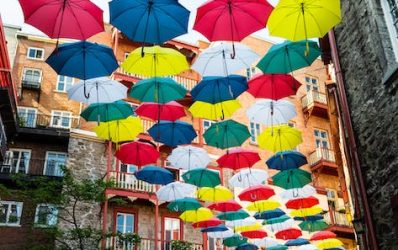
FLAIR
The CITY as a connection between society and community: Europe is inconceivable without its cities. Each has its own flair. Learners and adult educators in Berlin, Budapest, Florence and Skopje explore urban spaces, develop their own city tours, collect images for an exhibition and develop theatre scenes.
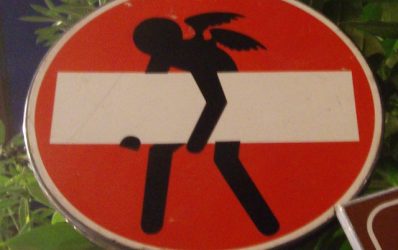
Walls in the mind
For some time now, differences between East and West have been noticeable again. At the same time, a dialog within the societies is becoming more difficult. Exchange with partners in BG, FR and Serbia.

Making voices heard
Co-determination in the EU: With the elections to the European Parliament, questions of participation are coming into focus. “Brussels” seems distant, the democratic deficit remarkable. But the European peace project, understanding and people’s diplomacy are still widely accepted. How can citizens exert democratic influence?
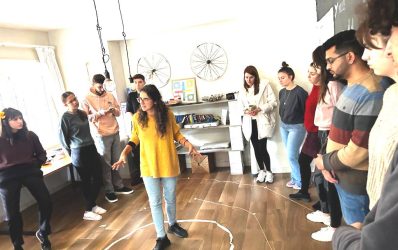
COSMO_POLIS
Job Shadowings of staff from weltgewandt in other European countries. Methodological training through practice and observation.
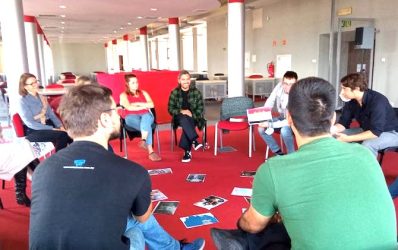
Moving memories
Development of a learning platform on transformations and upheavals in the history of six countries.

BYBLIOS
How can a (school) library be a place of work and learning as well as a community center for people with disabilities?

Climate + Change
… through democracy and inclusion: learners from four countries work on the topics of water, waste, CO2 and access to resources.

TALK WITHOUT SHOW
Discussion salons at irregular intervals on current social issues. Invited guests engage in discussions with interested members of the public.
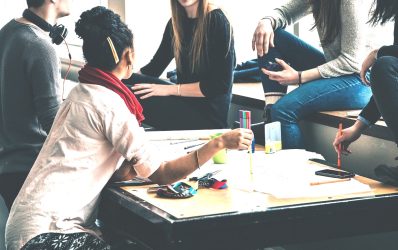
DIALOGUE CAFÉ
Every fourth Tuesday of the month: get to know people, laugh, talk freely in a friendly atmosphere. About your own questions, the neighborhood, the world. Open to everyone. Women and men.
ABOUT US
The weltgewandt (“open to the world”). Institute for Intercultural Political Education invites you to discover the world outside your door, next door and far away and to grow from it. weltgewandt offers learning. Not in the sense of education, but as an encouragement to think for oneself. Not as frontal teaching as often in school, but with creative methods. Information is nevertheless not neglected. The preferred topics are economy/social issues, digitalisation, culture of remembrance, integration. The focus is on diversity of perspectives and debate, empowerment, contact and encounter. The services offered by weltgewandt are aimed at people from all social and cultural backgrounds. We want to encourage people to discover their creative powers, to experience self-efficacy and to stand up for democracy, justice, freedom, tolerance and human rights. The projects are funded by the European Union, a foundation, donations from citizens and the state of Berlin.
TEAM
Koordination der Bildungsprojekte, Trainings, Verfassen von Bildungsmaterialien
Sozialwissenschaftlerin (Diplom)
Projektmanagement, Erstellung von Bildungsmaterialien, Öffentlichkeitsarbeit
Kultur- und Sozialwissenschaftlerin
Trainings, europäische Kooperationen, Schwerpunkt interkulturelle Bildungsarbeit
Doktorandin der Kulturwissenschaft
Beratung, Projekte zu Digitalisierung und ökonomischer Allgemeinbildung
Kaufmann für Bürokommunikation; Entwickler von Bildungsmaterialien
Projektmanagement und Trainings, Projekte zu Geschichte und Integration
Sozial- und Kulturanthropologe (MA)
Trainings, Beratung europäische Projekte zu Migration und Integration
Betriebswirtin, Einzel-Coaching von Migrant/innen
Projektmanagement ökonomische Allgemeinbildung, Digitalisierung, Erinnerungskultur
Studium der Linguistik und Informatik
